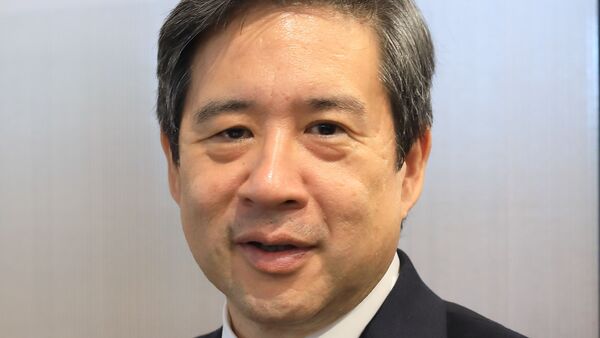Protectionism, reliance on apparel exports hinder Bangladesh’s trade bloc entry: ADB Chief Economist

Published :
Updated :

Bangladesh’s protectionist trade policies and heavy reliance on apparel exports are hampering its prospects of joining regional and multilateral trade blocs, said Albert Park, Chief Economist of the Asian Development Bank (ADB).
Speaking at a sideline event during the 58th ADB Annual Meeting in Milan, Park emphasized that the issue is not external reluctance, but internal economic and policy constraints.
“Countries are not unwilling to engage with Bangladesh,” he said, “but the internal challenges are the real barriers to forming bilateral and multilateral agreements.”
Park urged Bangladesh to focus on regional and bilateral trade partnerships to ensure long-term trade growth.
The four-day event concluded last Wednesday, bringing together key policymakers and development partners from across Asia and beyond.
Highlighting regional dynamics, Park noted that Asia and the Pacific have reaped significant benefits from open trade and integration into global value chains. However, the region now faces a new wave of challenges — from rising protectionism and geopolitical tensions to climate change and pandemic-related disruptions.
“In this context,” Park said, “deepening economic cooperation within and beyond Asia is essential for resilience and risk mitigation.”
Bangladesh’s average import tariff stands above 27 per cent — nearly three times the global average and one of the highest among Least Developed Countries (LDCs). According to World Bank data, average tariffs are 11% in low-income countries, 7% in lower-middle-income, 5% in upper-middle-income, and just 3% in high-income nations.
With Bangladesh set to graduate from LDC status in 2026, it risks losing preferential trade access to key markets. The government has initiated efforts to rationalise its tariff structure and is seeking membership in trade blocs such as ASEAN, BRICS, and RCEP to cushion potential impacts.
However, economists warn that without structural reforms and export diversification beyond readymade garments, Bangladesh may continue to face barriers in integrating with global and regional trade alliances.
doulotakter11@gmail.com


 For all latest news, follow The Financial Express Google News channel.
For all latest news, follow The Financial Express Google News channel.